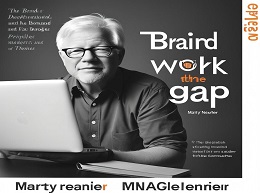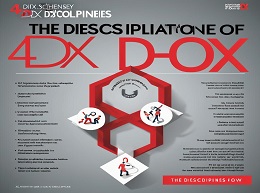The Age of Agile: How Smart Companies Are Transforming the Way Work Gets Done

Embracing Agility in Modern Business
In "The Age of Agile: How Smart Companies Are Transforming the Way Work Gets Done," Stephen Denning provides a comprehensive guide to understanding and implementing agile methodologies in contemporary business environments. Denning, a renowned author and thought leader in management and innovation, explores how agile principles can revolutionize the way organizations operate, fostering flexibility, efficiency, and sustained growth. This review delves into the core themes of the book, offering engaging examples and insights into how agile practices can drive success in today's fast-paced world.
Understanding Agile Principles
Agile methodologies originated in the software development industry as a response to rigid and slow traditional project management approaches. At its core, agility emphasizes iterative progress, collaboration, and adaptability. Denning explains how these principles can be applied beyond software development to transform entire organizations.
Spotify's Agile Journey
Spotify, the global music streaming service, exemplifies the power of agile transformation. By adopting agile practices, Spotify created autonomous squads responsible for specific features or services. This decentralized approach enabled rapid innovation, allowing Spotify to continuously evolve its platform based on user feedback and market changes.
Key Components of the Agile Manifesto
Denning revisits the Agile Manifesto, a set of guiding values and principles developed in 2001 by industry experts. The manifesto emphasizes:
- Individuals and interactions over processes and tools
- Working software over comprehensive documentation
- Customer collaboration over contract negotiation
- Responding to change over following a plan
These principles underscore the importance of human-centric approaches and adaptability in achieving agility.
Google's Project Aristotle
Google's Project Aristotle, an internal research initiative, discovered that psychological safety and effective team dynamics are critical to high-performing teams. This finding aligns with the Agile Manifesto's emphasis on individuals and interactions, highlighting the value of fostering a supportive and collaborative work environment.
Implementing Agile at Scale
While agile practices often start within small teams, Denning explores how they can be scaled across entire organizations. This involves aligning leadership, culture, and processes with agile values.
ING Bank's Agile Transformation
ING Bank, a Dutch multinational banking and financial services corporation, undertook a comprehensive agile transformation. By restructuring into cross-functional squads and tribes, ING increased its responsiveness to customer needs and market demands. This organizational agility enabled ING to launch new products faster and improve customer satisfaction.
Leadership as Enablers of Agility
Effective leadership is crucial for fostering an agile culture. Denning emphasizes that agile leaders must be enablers, providing vision and support while empowering teams to make decisions.
Microsoft under Satya Nadella
When Satya Nadella became CEO of Microsoft, he spearheaded a cultural shift towards agility and innovation. By promoting a growth mindset and encouraging collaboration, Nadella transformed Microsoft's approach to product development and customer engagement. This agile leadership has been instrumental in Microsoft's resurgence and success in the cloud computing market.
Prioritizing Customer Value
A fundamental aspect of agile is its focus on delivering value to customers. Denning argues that organizations must prioritize customer needs and continuously seek feedback to drive improvement.
Amazon's Customer Obsession
Amazon's customer-centric approach is a prime example of agile principles in action. By relentlessly focusing on customer satisfaction and feedback, Amazon continuously innovates and enhances its services. This commitment to customer value has been a key factor in Amazon's dominance in e-commerce and cloud computing.
Embracing Iterative Processes
Agile methodologies advocate for iterative processes, where projects are broken down into manageable increments that are continuously refined based on feedback. This approach minimizes risks and ensures that products evolve to meet customer needs.
Tesla's Agile Manufacturing
Tesla's approach to manufacturing and product development embodies iterative improvement. By frequently releasing software updates and making incremental improvements to its vehicles, Tesla ensures that its products remain cutting-edge and responsive to customer feedback. This agile methodology has contributed to Tesla's rapid growth and innovation in the automotive industry.
Addressing Common Obstacles
Denning acknowledges that agile transformation is not without challenges. Resistance to change, lack of understanding, and misalignment between teams and leadership can hinder progress. He offers strategies to overcome these obstacles, emphasizing the importance of communication, education, and cultural alignment.
Nokia's Agile Struggles
Nokia's initial attempts at agile transformation faced significant challenges, including resistance from middle management and a lack of clear vision. By addressing these issues through comprehensive training and aligning leadership with agile principles, Nokia was eventually able to foster a more agile and innovative culture.
Agility in a Rapidly Changing World
As industries continue to evolve, the need for agility becomes increasingly critical. Denning argues that organizations must remain vigilant and adaptable, continuously refining their agile practices to stay competitive.
The COVID-19 Pandemic's Impact
The COVID-19 pandemic highlighted the importance of agility in business. Organizations that could quickly adapt to remote work, shift their operations, and respond to changing customer needs were better positioned to navigate the crisis. This real-world example underscores the enduring relevance of agile principles in a rapidly changing environment.
Embracing the Age of Agile
"The Age of Agile: How Smart Companies Are Transforming the Way Work Gets Done" by Stephen Denning is an essential read for anyone looking to understand and implement agile methodologies in their organization. Through compelling examples and actionable insights, Denning demonstrates how agility can drive innovation, efficiency, and sustained growth. By embracing agile principles and fostering a culture of continuous improvement, organizations can navigate the complexities of the modern business landscape and thrive in the age of agile.
Final Thoughts:
Denning's book offers a roadmap for organizations seeking to transform their operations and achieve lasting success. Whether you are a business leader, manager, or team member, "The Age of Agile" provides valuable lessons on how to harness the power of agility to create a more dynamic, responsive, and innovative organization.













